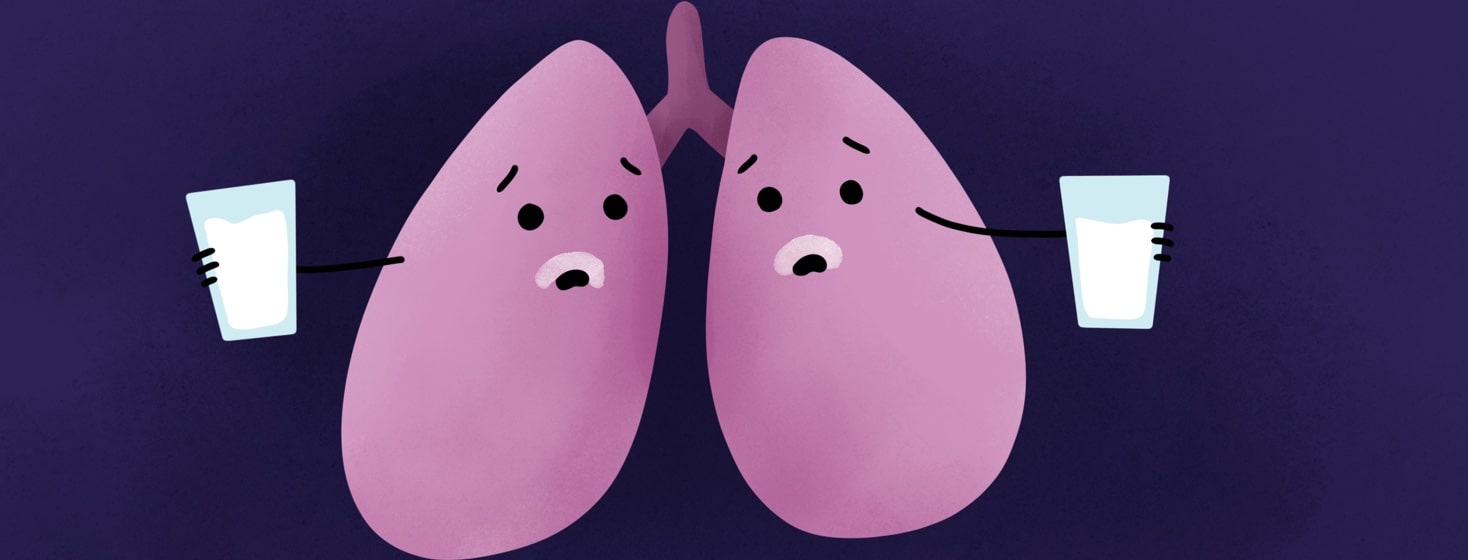Is Milk Bad For Asthma?
Milk is one of those controversial foods - some people are die-hard fans, while others won’t touch it with a ten-foot pole. Milk products have been hot topics in the health and wellness world within the past few years. Popular diets like the Ketogenic diet (aka keto) encourage individuals to eat foods high in fat, like butter, cheese, and yogurt. On the other hand, many people choose a plant-based or vegan diet, which contains little to zero foods that contain dairy. Due to this polarization, there are a lot of opposing opinions regarding milk on the internet.
We have heard stories from those with asthma who have decided to cut out milk products, and then seen improvement in their symptoms. Some say that avoiding milk products has reduced the amount of mucus or phlegm that they have, and improved their asthma symptoms. There are people on the internet that claim “Cutting out dairy cured my asthma!" That sounds great, but is it true? Let's see what science says about the relationship between milk and asthma.1
How does milk affect asthma?
I went through a long rabbit hole of research on the relationship between milk and asthma. I was expecting to find many articles that confirmed that dairy had a negative effect on asthma symptoms, but to my surprise, I found the opposite. Most research studies I read through concluded something along the lines of, “It is unlikely that dairy products have a specific bronchoconstrictor effect in most patients with asthma, regardless of their perception." Plainly speaking, the study found that dairy products did not cause constriction of the airways in those who have asthma (even if the participants thought it would!).2
Many people feel as if dairy creates additional mucus or phlegm in the throat. It may feel this way, but there has not been enough conclusive evidence that proves this to be true. Since dairy is a thick liquid, it can coat the throat and existing mucus. This is why it feels like you get more “phlegmy” after drinking milk or eating dairy products.3
Therefore, according to scientific studies, milk is fine to keep consuming if you have asthma. If you feel better taking dairy out of your diet, that is wonderful! Keep doing what you’re doing. However, if you have food allergies, milk could be one of them. If this is the case, then milk can certainly be bad for your asthma.
Milk/dairy allergies and asthma
If you have a food allergy, this can be a trigger for asthma. Milk happens to be one of the most common foods to be allergic to! Food allergies have their own set of symptoms, but if you have asthma, certain foods can also cause a flare-up or an asthma attack.4
If you have a milk allergy, then you might immediately feel symptoms such as itchy eyes, coughing, and a runny nose immediately after consuming a milk-based product. Other symptoms of a milk allergy include hives, nausea, vomiting, diarrhea, tingling in the throat, mouth, and lips. An allergy to milk can cause all of these symptoms, plus symptoms you experience from asthma, like bronchi constriction, shortness of breath, and wheezing. A food allergy, like milk, and asthma share similar symptoms (shortness of breath, coughing, wheezing) so they can easily be confused. It can sometimes be difficult to recognize and diagnose a food allergy if you have asthma.5,6
If you believe you are allergic to milk, discuss this with your doctor or dietician. Pay attention to how you feel the next time you drink milk or eat a milk-based product, and notice if any symptoms arise. If you have a milk allergy, it is recommended to avoid milk completely. I haven't had milk in 5 years, and I can guarantee you that there are plenty of delicious dairy-free alternatives on the market! Has anyone tried oat milk.4
Conclusion
There is a lot of misleading information and extreme claims on the internet regarding asthma. Just like you wouldn't trust a random stranger on the street, don't trust everything you read on the internet! People can say whatever they want on the internet, and it is important to listen to science, your body, and your doctor! If you feel fine consuming milk-based products, then there is nothing to be concerned about. If you feel specific symptoms arise after consuming milk-based products, record your symptoms and bring them up with your doctor.
Do you have a milk allergy? Do you consume milk, or avoid it in your diet?

Join the conversation